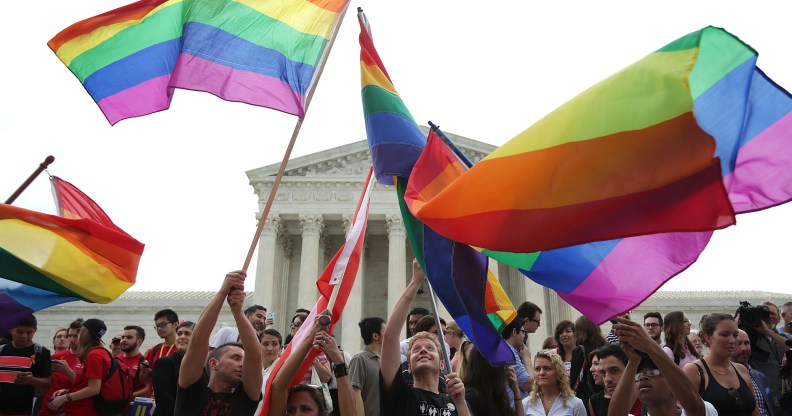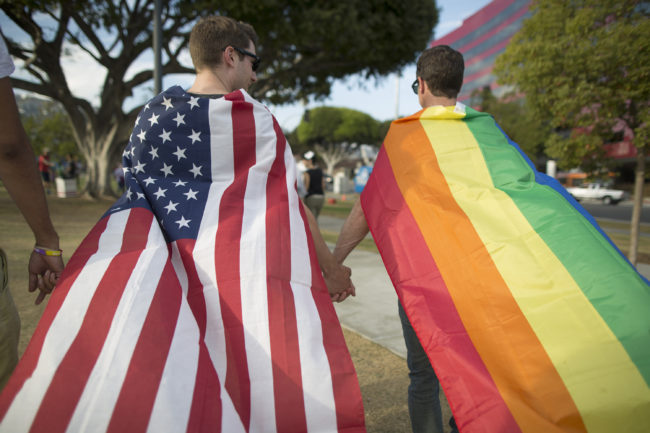Equal marriage laws improve mental health of same-sex couples

Same-sex marriage supporters rejoice after the U.S Supreme Court hands down a ruling regarding same-sex marriage June 26, 2015 outside the Supreme Court in Washington, DC. (Alex Wong/Getty)
A study has found that legalising equal marriage can improve the mental health of same-sex couples.
The research, led by the University of Illinois at Urbana-Champaign’s Professor Brian Ogolsky, examined the US Supreme Court ruling on Obergefell v. Hodges—which legalised marriage in all 50 states—in 2015 and the effect it had on people in same-sex relationships.
Ogolsky and his co-authors “found that psychological distress dropped, and life satisfaction increased after the U.S. Supreme Court ruling,” according to a summary of the study published on the Illinois Aces website.
The research paper’s “findings held regardless of marital status. In other words, the positive effects of Obergefell were felt by individuals in same-sex relationships whether married or unmarried.”
Ogolsky and his team collected survey data from both same-sex couples and different-sex couples in the four months prior to the Obergefell ruling and one year after.
Equal marriage improves psychological wellbeing for same-sex couples
Ogolsky’s team looked at anxiety, depression and life satisfaction and found that people with higher distress showed the most improvement.
“If you have experienced higher levels of stigma related to sexual orientation before Obergefell, then you had a larger reduction in minority stress, and larger gain in psychological well-being, after the decision,” Ogolsky said.
The study also found that equal marriage had no negative consequences for heterosexual couples.

Robert Oliver and Mark Heller (R) hold hands, draped in flags, as they celebrate the Supreme Court ruling on same-sex marriage on June 26, 2015 in West Hollywood, California. The Supreme Court ruled today that same-sex couples have a constitutional right to marry nationwide without regard to their state’s laws. (David McNew/Getty)
Equal marriage also improves family life
In a second research paper, Ogolsky’s team found that the equal marriage ruling led to higher levels of family support for same-sex couples.
Ogolsky believes it’s possible that, “family support increased because marriage equality allowed heterosexual kin to see their LGBTQ family members as fitting into cultural norms of marriage.”
The physical health benefits of equal marriage
Professors at Vanderbilt University last year found that equal marriage led to increased health insurance coverage and better access to health care for men living in same-sex households.
The study revealed that gay marriage “increased the probability” of a man in a same-sex household having health insurance by 4 percent.
Since same-sex marriage was legalised in 2015, men in same-sex relationships were 4 percent more likely to have a “usual source” of health care and 7 percent more likely to have had a health check-up in the past year.

